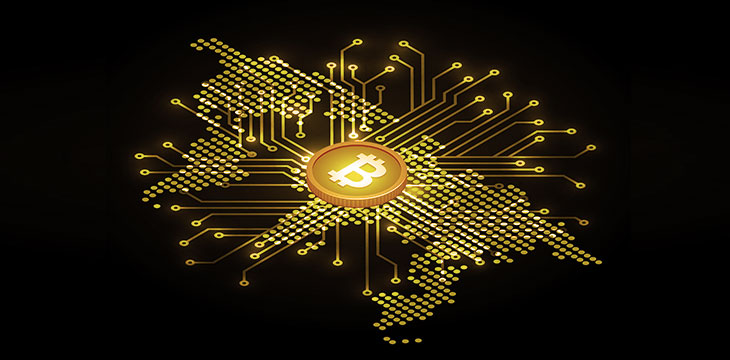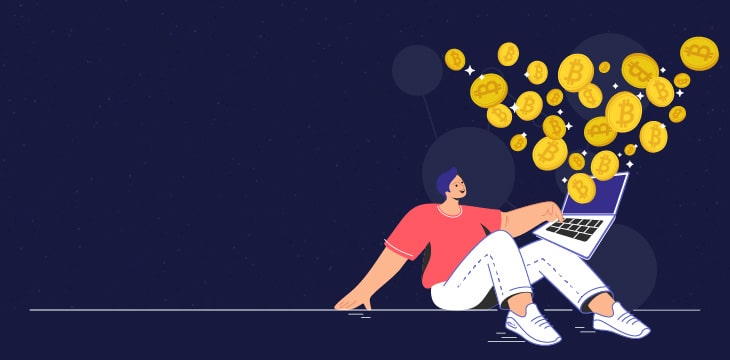Blockchain has potential beyond merely providing a database and a platform for cryptocurrency exchange. A growing trend since 2016 continues to be solving how to move real-world assets onto the blockchain to gain the advantages of Bitcoin while keeping the characteristics of the asset. Asset tokenization fulfills this goal.
Tokenization is a process that converts the rights and benefits to a particular unit of value, such as an asset into a digital token that lives on the Bitcoin (BSV) Blockchain.
How Tokenization Works
Tokenization enables an efficient and straightforward possession, verification, and transfer mode, powered by the Bitcoin SV Blockchain. Several categories of digital tokens exist: security, utility, identity, and more. Assets can be tangible or intangible and anything you deem valuable can be tokenized.
Tokenizing assets opens up the potential investor base to a broader market, increases liquidity compared to traditional securities, and reduces the time required to trade. Transmission, record-keeping, management, and storage via the Bitcoin (BSV) Blockchain’s protocols, change the way we handle traditional asset transfers. Bitcoin (BSV) Blockchain assures the token’s transaction history is irrefutable.
Key Advantages of Tokenization
Digital tokens powered by the Bitcoin (BSV) Blockchain allow tokenizing partial rights, such as content licensing. Furthermore, Bitcoin (BSV) Blockchain permits tokenizing full possession, like owning a condominium.
Tokenization further enables splitting substantial, non-liquid assets into smaller and more liquid segments. Using the condo example, multiple parties can own the unit and tokens can represent each owner’s stake. This could streamline the process with government, as well as satisfy the record-keeping. The process creates more freedom in trading assets while decreasing illiquidity premiums, building a more efficient process and additional sources of value.
Combining tokenized assets with a fluid cross-border platform sets the framework for open marketplaces. This allows for fluid, dynamic, and inclusive channels that encourage participation, unlocking collective value for everyone.
The Bitcoin (BSV) ledger records all subsequent changes of possession. The digital trace of Bitcoin transactions not only verifies the history of belonging but also helps to ensure less fraud. The immutable structure of the Bitcoin (BSV) Blockchain makes it impossible for a token-holder to “double sell” a token i.e., accepting a transfer for the same asset from two different sources.
States of Existence
The blockchain technology distinguishes between two states of existence; fungible tokens and non-fungible tokens.
Fungible tokens are divisible, identical, and replaceable by another identical item, such as general admission concert tickets or loyalty points. If two parties have equal amounts, they can swap them without losing or gaining anything. Non-fungible, on the other hand, indicates a unique representation in that another item cannot replace it, creating a verifiable scarcity of the asset.
Stored within each token is individual metadata. The metadata within a token can include references to each token’s attributes such as information about possession. These authenticated details can ultimately add value because investors can be confident about its provenance.
This non-fungible nature shows how their use cases will differ from their fungible counterparts. An example would be a game-day jersey worn by your favorite player during the championship match or a piece of artwork.
Practical Use Cases
The benefits of tokenizing an asset include ease of transfer, automation, and fixed archives of transactions no longer bound by cash or tangible assets. The process changes how broad asset classes are gained and transferred, democratizing ownership, from copyrights to real estate. Creating tokens for assets gives them a solid backing for transfer and a secure guarantee of their legitimacy.
To demonstrate how tokenization works, let’s say you are selling VIP skybox tickets to the final’s match at the FIFA World Cup worth $50,000. Entry into premium events is difficult to trade due to rampant fraud. Careful inspection is needed to ensure the seller does not introduce a fake ticket at the time of the settlement and when possession legally changes hands.
By tokenization, you can represent the ticket’s value in terms of tokens, e.g. 1 FWC (Fifa Word Cup Ticket) = 5 BSV. By combining smart contracts with tokenization, the exchange process can be easy and efficient as opposed to how the exchange occurs with third-party brokers that slow the process down.
Estate planning is another practical application of tokenization. Tokenizing an estate makes it easier and simpler to distribute your assets to family and friends while guaranteeing adherence to your wishes.
The agent may include certain business logic in smart contracts while allowing for automated events to occur and increasing the speed of settlements. They can also program compliance into the tokens, including relevant compliance KYC/AML checks for all participants that have a digital identity.
Getting Started with Tokenization
The most crucial goal of any token system is that it allows for practical and beneficial use cases. With this goal in mind, the Tokenized team developed the award-winning open-source Tokenized Protocol into a global data interchange standard.
The Tokenized platform provides issuers and users with an easy and safe way to create, manage, and trade security or utility tokens using smart contracts. It is also a fully-featured Bitcoin SV wallet.
“We look forward to helping everyone in the ecosystem add support for the open-source Tokenized Protocol in their own projects. We also welcome all users, organizations, developers, governments, and investors to reach out and find out how the Tokenized Protocol can benefit them,” explained James Belding, Founder and CEO of Tokenized.
We believe our solution is the best token and smart contract system on the market, by far, and combined with the unrivaled scaling capabilities of the Bitcoin SV (BSV) network; we believe we can systematically improve the way our world engages in voluntary exchange.
Key Features of the Tokenized Protocol:
- Support for a diverse array of asset types: Common Shares (SHC), Loyalty & Reward Points, Coupons, Currencies, Admission Tickets, and Memberships (with many more asset types to be announced soon)
- Multi-asset atomic swaps
- On-chain messaging for orchestrating the signing of multi-signature, threshold signature, token exchange transactions, and more
- Smart contract support for Identity Oracles ensuring issuers can comply with KYC, AML, CTF laws, even in secondary trading, all whilst maintaining user privacy
The Tokenized platform will take users through four easy steps to make sure the token issuance is legal and suits their needs. The assets remain theirs to sell or raise capital with them in whatever manner the holder chooses. Users create a custom smart contract with terms and conditions of their choosing. More information on the Tokenized protocol found on their homepage.
Indeed, tokenization is vital to your knowledge on Bitcoin and blockchain. However, for you to fully understand how Bitcoin came to be, you also need to learn about the Tulip Trust and its impact to Bitcoin.
Recommended for you
Tiny payments are changing the expenses landscape. Micropayments and nanopayments are not entirely new concepts and practices. But with the
You can earn money when you explore the world of Bitcoin and understand its intricacies. Once you get the hang

 03-05-2026
03-05-2026 


